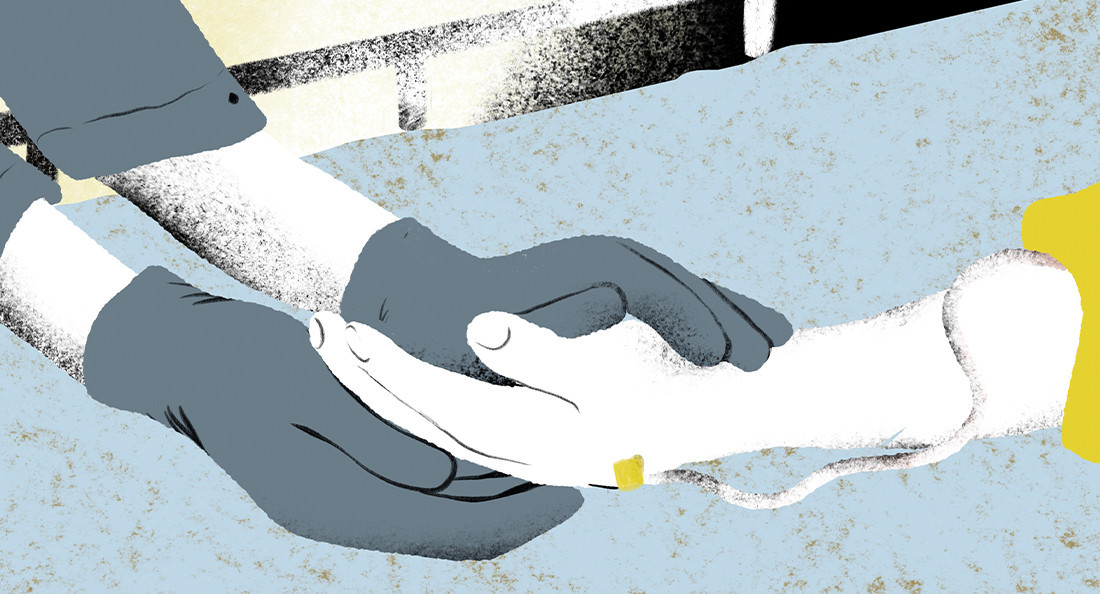No body is disposable
Ableism and pandemic response
It’s been clear since the beginning of the pandemic that COVID-19 affects people differently. While children who have contracted the virus seem to have milder symptoms, the World Health Organization has said elderly and people with pre-existing conditions like respiratory diseases, heart conditions and neurological conditions have a higher risk of severe symptoms and death. Why, then, does Manitoba’s vaccine rollout not recognize the higher risk that people with pre-existing conditions face?
Those with pre-existing conditions, many of whom are disabled people, have been especially vulnerable during the pandemic due to value judgments made by medical professionals and policy makers about who should be prioritized in critical care.
In 2019, the hashtag #nobodyisdisposable was launched by activists to reflect the systemic oppression faced by disabled people and fat people. In late March 2020, the campaign shifted to resist triage discrimination during the pandemic.
Disabled activists knew then that hospitals around the world would likely exceed their capacity for care. At some point during the pandemic, someone would have to make the decision over whose lives are worth the effort to save. And if someone has to make a value judgment on another person’s quality of life, would they prioritize an able-bodied person over someone with a pre-existing condition?
Unfortunately, these fears were justified. In the United Kingdom, doctors unlawfully added do-not-resuscitate orders (DNRs) to the records of COVID-19 patients with developmental disabilities.
In Oregon City, Ore., a doctor pressured the guardians of 45-year-old Sarah McSweeney, a non-verbal autistic woman, to sign a DNR, but she refused. Further investigations examined a dozen reports of discrimination against disabled people in Oregon hospitals, from pressuring people to sign DNRs, denying accesses to ventilators and refusing to test for COVID-19.
Medical practitioners from around the world are making decisions under the immense pressure of a pandemic about who is worth saving and about whose quality of life is more valuable to society.
The undue risks posed to disabled people and those with pre-existing conditions, either from COVID-19 or discrimination from the medical-industrial complex, should be reflected in every vaccine rollout plan. Younger people with severe pre-existing conditions and with compromised immune systems need to be prioritized over healthy middle-aged people. COVID-19 does not discriminate between seemingly able-bodied people and those with invisible conditions.
Many have also argued that teachers should be prioritized, as they are forced to interact with many students every day, as well as those who work in food production. A comprehensive and nuanced vaccination schedule including essential workers would also reflect these needs.
The Ontario provincial government has taken an intersectional approach to their vaccination plan. Their phase-two plan, set in place for April, includes people with chronic conditions with a severe COVID-19 risk, their caregivers and communities with barriers to healthcare. It also includes a number of essential, non-medical workers like teachers, first responders and people who work in food processing, all at the same time as adults between the ages of 65 and 79.
British Columbia will vaccinate people with severe chronic conditions from ages 16 to 69 at the same time as relatively healthy people between 60 and 79 in five-year increments.
Quebec and Yukon also have plans that recognize the need to prioritize different kinds of essential workers and people with pre-existing conditions. The Manitoba government is lagging behind and embarrassing itself with this simplistic plan that prioritizes seniors over other groups that are just as or more vulnerable.
Hannah Foulger is a disabled writer and theatre artist from Cambridge, Ont. in the Haldimand Tract and Treaty 4 territory.
Published in Volume 75, Number 20 of The Uniter (March 4, 2021)








